![]() a teacher
a teacher
 JP | EN
JP | EN
 JP | EN
JP | EN
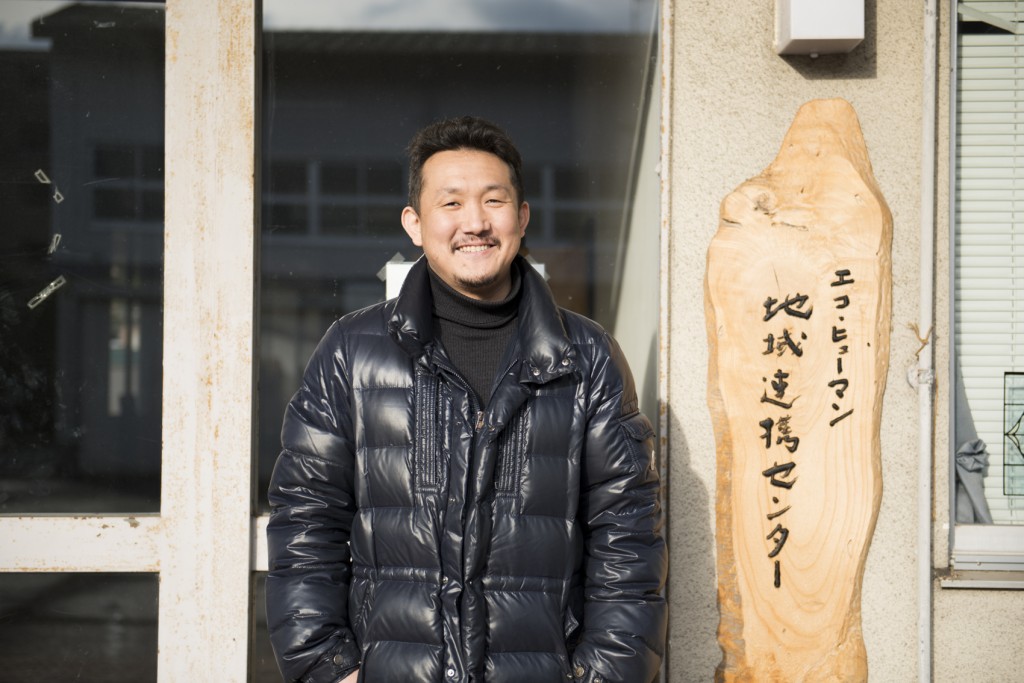
I remained quite cool-headed while experiencing what was going on through my physical senses, seeing the TV being hurled to the floor, and smelling dust from the strained building. I don’t know why, but everything I remember from that day is toned in blue.
I first looked out over the town to grasp the entire situation. Following my gut instinct, I immediately rushed to the rescue of people. It wrung my heart to see a mother who had lost her child in the disaster wail, “Why did you rescue me?” However, I also clearly remember realizing that human beings, by nature, show their emotions openly, just like this mother.
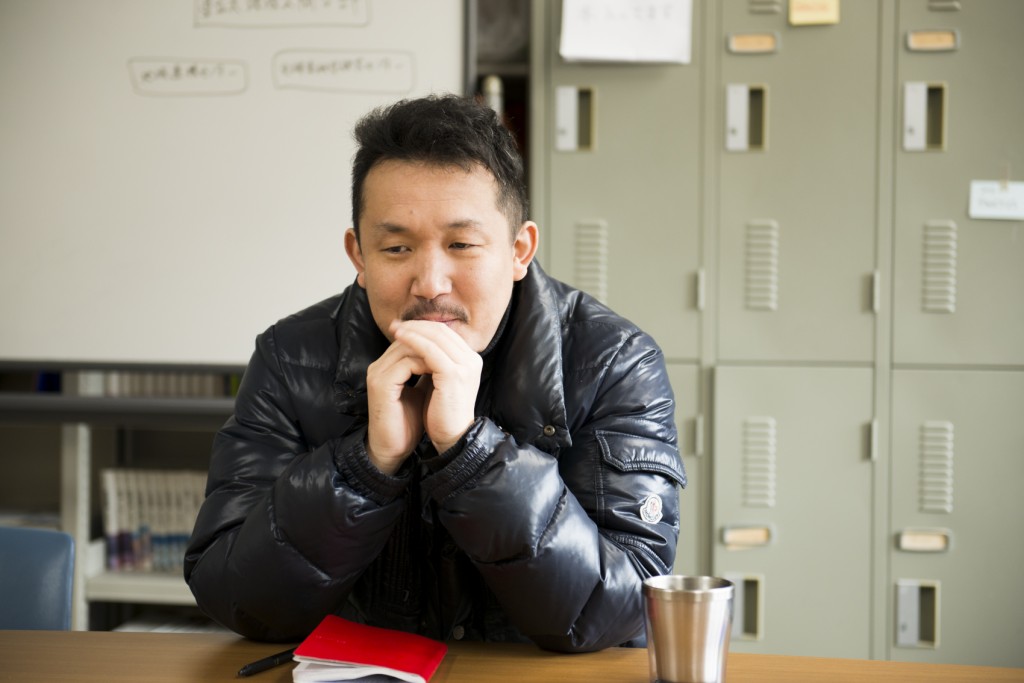
Thanks to the books such as those on history that I reread during that period, I learned about action initiators of the past and encountered anthropology. Anthropology is the study of humankind and its nature. In the aftermath of the earthquake, I saw the resilience of people and truly realized that people could bounce back from catastrophes. During the immediate post-earthquake period, I took advantage of my knowledge of the difference between human ability and human qualities. Human ability is the range of a person’s capacities to do something. And I confirmed through my own experience that human qualities are a person’s ability to communicate with others and cooperatively bring something forth. After returning to university, I pursued anthropology to explore the fundamental motives that drive human behavior.
I was always impressed by the spiritual climate of the Kansai region when I saw someone showing very human behavior, for example, using some everyday minutiae as an opportunity to open up a small conversation. Such behavior is so powerful that it enables one plus one to equal more than two—even four or five. That’s a human quality that is necessary for us to survive, I thought.
I felt very awkward about conducting the survey just after everyone had undergone such indescribable suffering. Through the survey, I realized, among other things, that many of the affected people couldn’t return home to Kobe. A fair few people had no choice but to distance themselves from the disaster area due to their life circumstances.
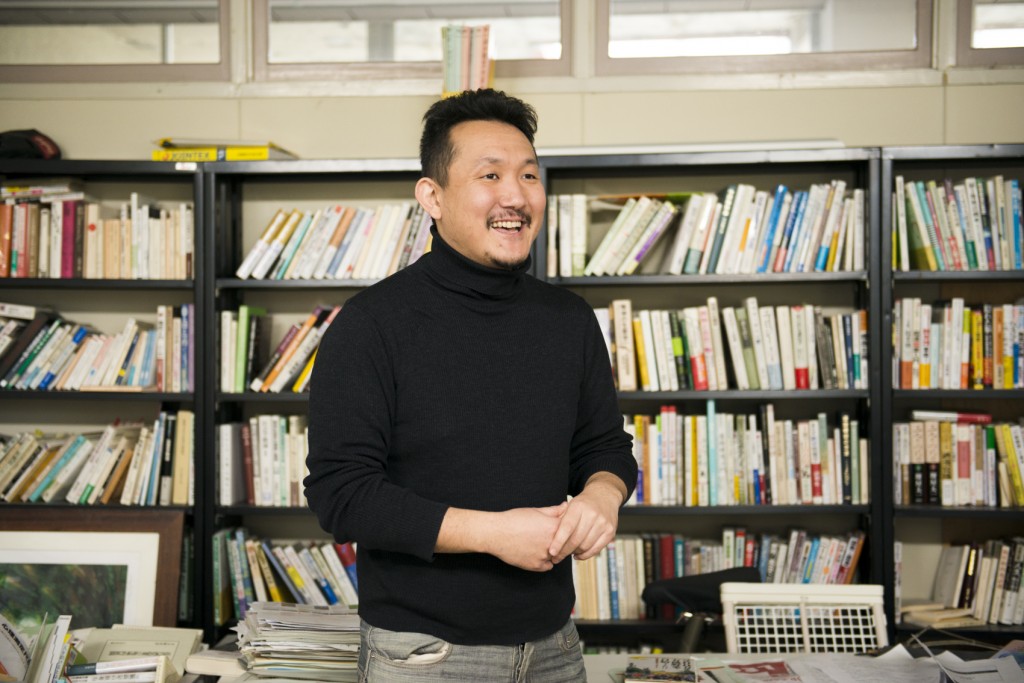 Photo Bookshelves in Mr. Uchihira’s office lined with books of many different genres
Photo Bookshelves in Mr. Uchihira’s office lined with books of many different genresI wanted to know more about the people who were taking action to pursue their passion. And consequently, I have reached the conclusion that human qualities a person’s very life.
I searched for something that would be able to contribute to people’s vibrant lives after the affected areas had recovered. I think that an important factor in post-quake town development is cooperation between the government and local residents. That’s why now I act as an intermediary between the government and local residents by promoting community cooperation in my job.
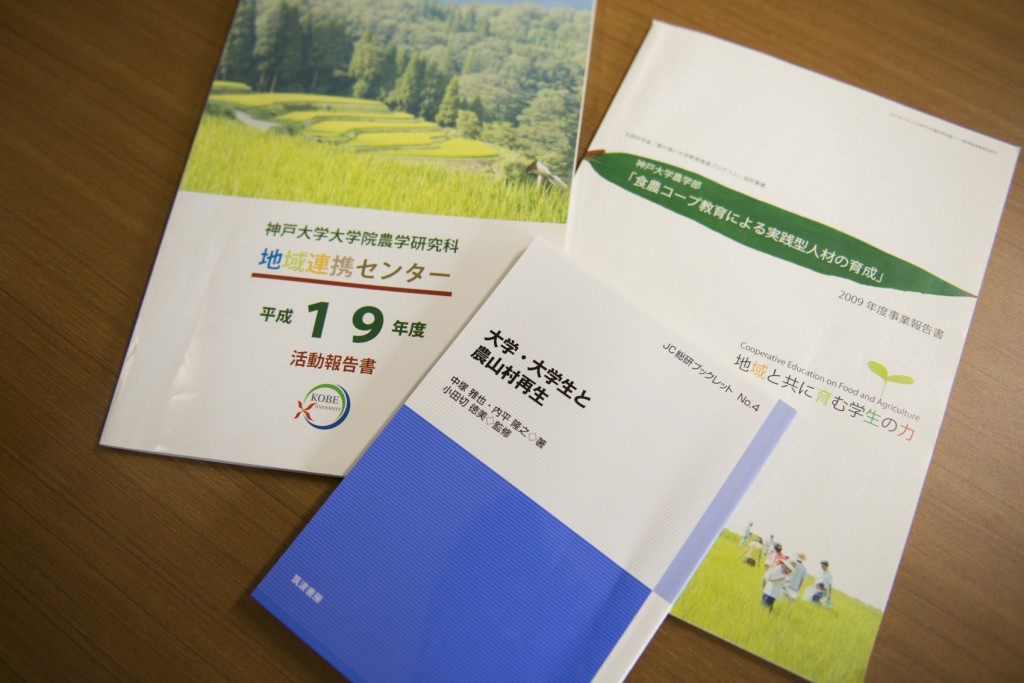 Photo Books and annual reports that summarize the concept and fruits of community cooperation activities
Photo Books and annual reports that summarize the concept and fruits of community cooperation activitiesProject leaders should set a good example for members by demonstrating their human abilities, and get people involved in the project through their human qualities. In order to develop such leaders equipped with both human ability and qualities, I want to build a team with adults who will have fun with students while serving as a model for them.
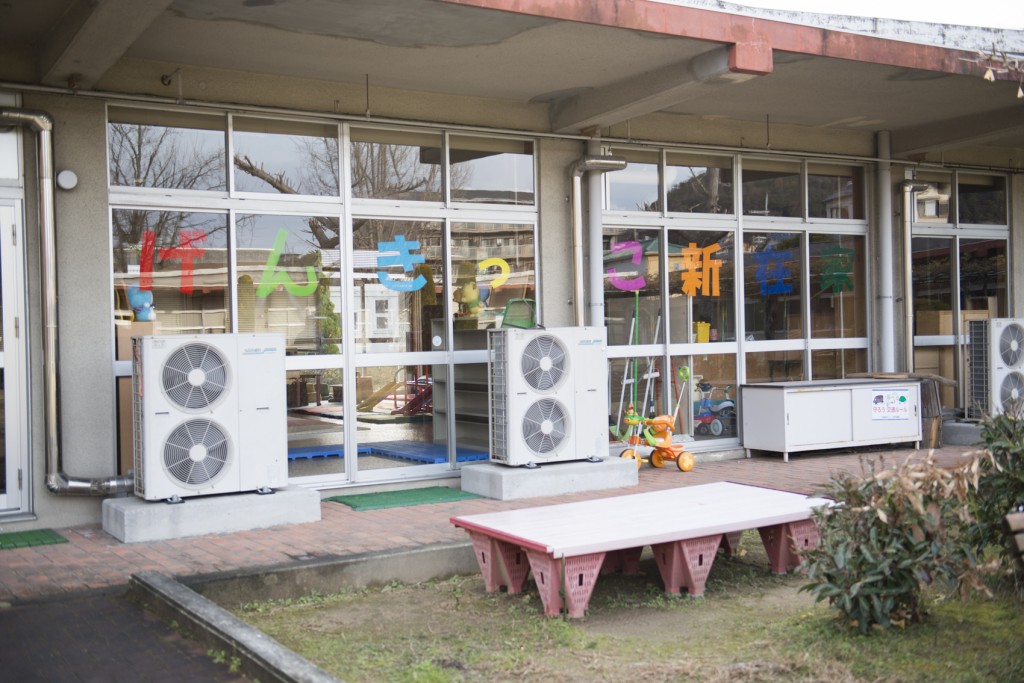 Photo Genkikko-Shinzaike is a local children’s community center run by students. The center, located on the campus of the University of Hyogo School of Human Science and Environment, offers a meeting place with peace of mind for local parents and children.
Photo Genkikko-Shinzaike is a local children’s community center run by students. The center, located on the campus of the University of Hyogo School of Human Science and Environment, offers a meeting place with peace of mind for local parents and children.Students have been working on the project focusing on indigenous crops in Harima, Hyogo Prefecture, such as Harimaoh-garlic, mochimugi-barley, and Himeji-mugwort, which was newly added in 2014, by adopting three approaches: farming them, enjoying their original tastes, and passing them on. In the presentation, students explained that utilizing this native crop preservation system with these three approaches would provide possible solutions to various community issues.
Students from developing countries also participate in Enactus. They are driven by necessity. I wanted our students from the School of Human Science and Environment to learn of the activities of such overseas students through the Enactus World Cup and come to see their social challenges as their own concerns. And hopefully, through their experience on the great stage of the World Cup, they discovered the joy of exerting themselves to the utmost, and experienced what it is to fail.
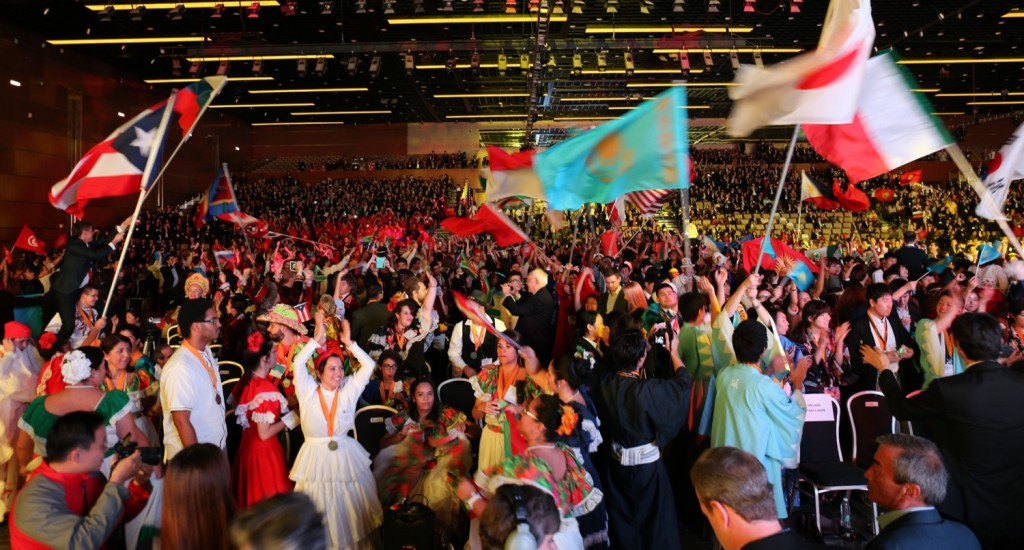 Photo Opening ceremony of the Enactus World Cup 2014 in Beijing
Photo Opening ceremony of the Enactus World Cup 2014 in BeijingIt often strikes me that the education system in Japan pays little attention to the emotional and sentimental development of students. So, I want EHC to be a place of learning that helps people develop their flexibility as a person and appreciation of diverse values, and thus equips more people with the skills to move society.
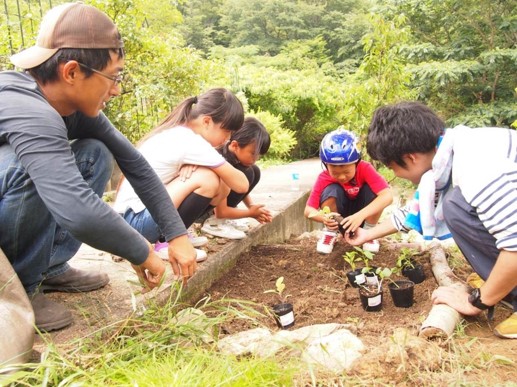 Photo Students and children growing Harimaoh-garlic in a local forest, following the instructions of soil experts
Photo Students and children growing Harimaoh-garlic in a local forest, following the instructions of soil expertsIt is quite natural for survivors of the earthquake to hand down their experience stories to younger generations. At the same time, it is also important to understand and show consideration for the feelings of those who experienced the disaster but will not or cannot talk about it.
I hope Kobe will provide more opportunities for activities for people with human qualities, and will become a “hub city” that leverages human qualities to promote human social ties. I believe that the people of Kobe created the strongest bonds with each other in all of Japan in the aftermath of the Great Hanshin-Awaji Earthquake. I hope that Kobe will further cultivate fertile ground for talent who will create value for the next generations.
Takayuki Uchihira
Takayuki Uchihira is an Associate Professor at the University of Hyogo and Deputy Director of the Eco Human Community Cooperation Center (EHC), which is affiliated to the University of Hyogo School of Human Science and Environment. After experiencing the Great Hanshin-Awaji Earthquake in 1995 as a student in the Faculty of Engineering, Kobe University, he has been actively engaged in many research, education, and social action projects off campus involving academia and local communities working together. By leveraging his experience and know-how acquired from such activities, he now devotes himself to practical studies aimed at creating systems that will establish linkage between universities and local communities. He is working on projects involving, for example, community development using natural, human, and cultural resources available in the community and interaction programs between urban and farming communities in Harima and other areas in Hyogo Prefecture.